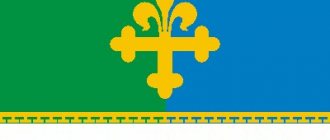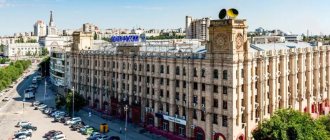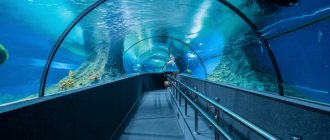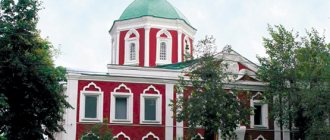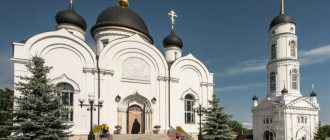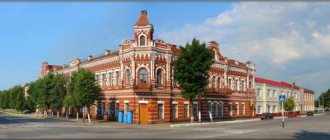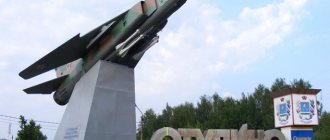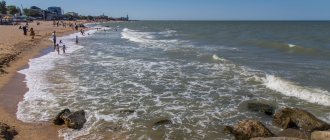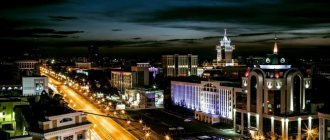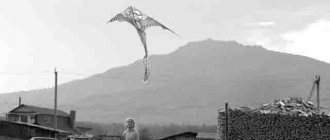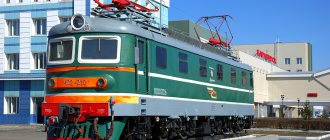general information
The city of Ruzaevka is the second largest city (after Saransk) in the Republic of Mordovia. The city stands on the Insar River (which is the Volga basin), the territory is 27 square kilometers.
The climate is temperate continental. Frosty winters and moderately hot summers are typical for these places.
The population of Ruzaevka is relatively small, but it ranks second in size after Saransk.
The history of the city begins in 1637. Initially it was a small settlement. From the second half of the 18th century, the village became the property of the Russian figure, poet and critic N. E. Struisky. In 1783, the first church was built, and Ruzaevka acquired the status of a village. During the Industrial Revolution, the village became an important railway junction in the Moscow-Kazan direction. Thanks to this, the settlement is called “Railway Gates of Mordovia.” Ruzaevka acquired city status in 1937. At that time, the population of Ruzaevka was only about 16,000 inhabitants.
Today the city has a chemical engineering plant, railway transport enterprises, as well as a light industry plant, a knitting factory and a dairy products plant. There are several higher educational institutions in Ruzaevka.
Recommendations
Notes
- ^ a b c d f g gram
Law No. 7-Z - ^ a b
Federal State Statistics Service of Russia (2011).
“All-Russian Population Census 2010. Volume 1" [All-Russian Population Census 2010, vol. 1]. All-Russian Population Census 2010 [All-Russian Population Census 2010]
(in Russian). Federal State Statistics Service. - "26. The size of the permanent population of the Russian Federation by municipalities as of January 1, 2022.” Federal State Statistics Service. Retrieved January 23, 2022.
- ^ a b c d f
Law No. 14-Z - "On the calculation of time." Official Internet portal of legal information
(in Russian). June 3, 2011. Retrieved January 19, 2022. - Post office. Information and computing center of OASU RPO. ( Post office
).
Search for postal facilities ( Search for postal facilities
) (in Russian) - Federal State Statistics Service of Russia (May 21, 2004). “The population of Russia, the constituent entities of the Russian Federation as part of federal districts, urban settlements, urban settlements, settlements, settlements is 3 thousand or more people” [Population of Russia, its federal districts, constituent entities of the federation, districts, urban settlements, rural settlements - administrative centers, rural settlements with a population of more than 3000 people] (XLS). All-Russian Population Census of 2002 [All-Russian Population Census of 2002]
(in Russian). - “All-Union Population Census of 1989. The current population of union and autonomous republics, autonomous regions and districts, territories, regions, urban settlements and rural district centers” [All-Union Population Census of 1989: current population of union and autonomous republics, autonomous regions and districts, territories, regions, districts, urban settlements and villages that are district administrative centers]. All-Union Population Census of 1989 [All-Union Population Census of 1989]
(in Russian).
Institute of Demography of the National Research University: Higher School of Economics [Institute of Demography of the National Research University: Higher School of Economics]. 1989 - via Demoscope weekly
. - Editor Jumava, Riga, 2022. ISBN 9789934119972. Audio (broadcast 11/19/2016. Time 22:05 LR1) link (from recording 1 minute 40 seconds to 19 minutes 40 seconds) https://www.latvijasradio.lsm.lv/lv /lr/arhivs/?__uri=lv/lr/arhivs/&adv=1&channel=1&d=19&d2=&keyword=&m=11&m2=&y=2016&y2=&page=1
- Kovshov V.P., Mokshina Yu.N., Tuvin A.S. “Encyclopedia of Mordovia.”
City population
The national composition of Ruzaevka: Russians, Mokshans, Tatars, Erzyans. As for the number of residents in the city, since 2000 there has been a constant decline.
| Year | Number of inhabitants |
| 2001 | 52,300 people |
| 2003 | 49,800 people |
| 2005 | 49,000 people |
| 2007 | 48,300 people |
| 2009 | 47,647 people |
| 2011 | 47,500 people |
| 2013 | 46,787 people |
| 2015 | 46,213 people |
| 2017 | 45,988 people |
The trend of population decline in Ruzaevka suggests that some of the residents are leaving the city in search of a better life. It seems natural. After all, the capital of Mordovia is nearby, where more than 300 thousand people live. There is a more developed infrastructure and more available jobs.
Of course, in Saransk living conditions are much better than in a small town with 45 thousand inhabitants, and, as you know, “fish look for where it’s deeper, and people look for where it’s better.” However, a lot depends on the municipal authorities: the more they develop the town, fight unemployment, improve the everyday life of residents, monitor cleanliness and order, the fewer people will want to leave their homes.
Also, to increase natural growth, it is necessary to improve the living conditions of the young population of the city of Ruzaevka: provide the opportunity to use free medical services without complications, create jobs for citizens who do not have work experience, and make it affordable to purchase their own real estate.
Administrative and municipal status
Within the structure of administrative units, Ruzaevka serves as the administrative center of Ruzaevsky District, even though it is not part of it.[1] As an administrative division, it is registered separately as the city of republican significance of Ruzaevka
- an administrative unit with a status equal to that of a district.[1]
As a municipal entity, the city of republican significance of Ruzaevka is part of the Ruzaevsky municipal district as the Urban Settlement of Ruzaevka
.[4]
Sights of Ruzaevka
Despite the fact that the town occupies a relatively small area geographically, there is also something to see here. Below are just some of the interesting places in Ruzaevka:
- Holy Trinity Cathedral. This temple was erected in 2009 and consecrated in 2012. One of the youngest cathedrals not only in Mordovia, but throughout Russia. The brick building is made in a very elegant and harmonious style. This is a real decoration of the city.
- Monument "Black Tulip". The monument is dedicated to the memory of the victims of the wars in Afghanistan and Chechnya, built thanks to the voluntary efforts of the entire caring population of Ruzaevka. It consists of three columns on which a bell is located, and at the bottom center of the base of the columns there is a bowl of a black tulip, symbolizing the plane on which the soldiers made their last flight.
- Paygarm Paraskeva-Voznesensky Convent. The monastery was founded in the mid-19th century, on the initiative of local residents. The building was then used for completely different purposes. So, during the revolution there was a military headquarters and a hospital here, after which the monastery became a state farm, then a hospital. Already at the end of the last century, the monastery was returned to Orthodox believers and clergy.
- Steam locomotive-monument L-2345 “Lebedyanka”. Steam locomotives-monuments for the city, which was a major railway center, are a common occurrence. Lebedyanka actively participated in the restoration and construction of the city in the post-war years. Its maximum speed reached about 100 km/h. This is one of the fastest locomotives of that time.
Steam locomotive-monument L-2345 “Lebedyanka”
As already mentioned, throughout the last century Ruzaevka was rightfully the center of the country’s railway economy. That is why you can easily spot steam locomotive monuments in the city. One of them, Lebedyanka, began its work in the year the Great Patriotic War ended, serving as the main transport in construction and restoration.
At that time, he was rightfully considered one of the fastest and reached a speed of almost one hundred kilometers per hour. About four thousand of the same locomotives were produced, and initially they were simply called by the first letter - L. The locomotive was already popularly named Lebedyanka.
Location: Station Square - 5.
Art Gallery
The gallery is located on Lenin Street. The exact time of its foundation is unknown, but this does not prevent the gallery from being considered one of the main attractions of Ruzaevka. Once here, you can get acquainted with many paintings by local artists, works of sculptural talent, and handicrafts.
The gallery also often hosts various exhibitions where visitors are offered works by contemporary authors or long-known masterpieces of world or Russian art.
Location: Lenin street - 48.
Guide to Ruzaevka
We go behind the Lenin monument, evaluate the rotunda into which the KamAZ crashed and arrange a promenade along the station square
How we did it The guide to Ruzaevka was not easy for us.
We immediately decided that we would not go on an excursion to this town, but we would find one or a couple of avid Ruzaevka residents who would lovingly and knowledgeably tell us where in Ruzaevka we could take a walk. In which squares to chill with ice cream on a bench, where to look for provincial aesthetics for Instagram, and is it even possible to arrange a relaxed promenade here?
The task turned out to be beyond the power of even the seemingly indigenous townspeople. Either from a reluctance to waste time on useless “Ratings”, or from ignorance of your city in principle, or from an ironclad belief that there is nowhere to walk and nothing to do in Ruzaevka.
“We have nothing! Three hookahs for the whole city!” - every second person told us, and every third one simply refused.
Photo: Kirill Zdorov
But we still believe that we will find our Ruzaev expert, because we plan to learn and tell even more about this city.
station Square
Address: 54.056474° 44.949711°
Photo: Yulia Avdeeva
The station square is life, and that’s where we should start. The station square means looking around at the bombers and taxi drivers, buying pies from the grandmothers near the station or in the stalls inside the station and moving forward without turning around.
There is a small alley with perhaps the main artifact of Ruzaevka - the Lebedyanka steam locomotive. “Lebedyanka” is one of the best and most popular Soviet steam locomotives, from 1962 to 1970 it worked on the Penza - Ruzaevka - Krasny Uzel section, and now proudly notifies all locals and non-locals that you have arrived in the railway capital of the republic.
Photo: Yulia Avdeeva
If you walk further along the alley, you can stumble upon a small chapel (Chapel of the Kazan Icon of the Mother of God), which was built in 2004 in memory of the natives of the city who died in the 1990-2000s in the North Caucasus.
Photo: Yulia Avdeeva
Park of Culture and Recreation
Address: Tereshkova, 45
Photo: Yulia Avdeeva
Or Pushkin Park at minimum wage. The good: 15 hectares of luxurious forest, oaks, birches and clean air - all in the best traditions of a healthy person’s park. Except for the rides. There are some here too, although not everyone has the courage to ride them. As a townswoman told us, “carousels, of course, have been here since the 80s, I remember them from childhood.”
Photo: Yulia Avdeeva
Photo: Yulia Avdeeva
And if in the summer the surroundings can somehow look like an amusement park, then in the fall the view can lay claim to a location for filming “Stranger Things” or “Zombie Apocalypse.” And this also has its own romance!
Photo: Yulia Avdeeva
Church of the Nativity of the Blessed Virgin Mary
Address: Gagarina, 60
We walk from the park down Tereshkova to the intersection with Gagarin and find ourselves next to the oldest temple in the city - the Church of the Virgin Mary. It is a house of worship that was built in 1980. In 1990, it was rebuilt into a full-fledged temple with a bell tower.
Walk of Fame
Address: 54.059044° 44.949112°
Photo: Yulia Avdeeva
Almost 11 years ago, the Walk of Fame was opened right behind the Lenin monument in Ruzaevka. Usually weddings are filmed there - yes, right behind Vladimir Ilyich's back. Up along the edges of the alley there are busts of Heroes of the Soviet Union and Russia, whose lives are connected with Ruzaevka. And the alley ends with a rotunda, into which a KamAZ truck crashed at full speed in 2012. The driver jumped out of the truck seconds before the collision. Fortunately, no one except the rotunda was injured.
“In Ruzaevka there can only be such sights,” a townswoman shared her observations with us.
Priklubnaya Square
Address: Revolution of 1905, 4, Cultural Center named after A.V. Ukhtomsky
Photo: Kirill Zdorov
Another simple place where you can sit on a bench and look around and especially at the building of the cultural center itself, which the city residents received as a gift in 1952. The building in the Stalinist Empire style still has no analogues in the republic. A little later, the club was named after Alexei Vladimirovich Ukhtomsky, a driver who accomplished a legendary feat - in 1905, he took a train with vigilantes out from under punitive fire.
War memorial
Address: 54.057904° 44.936893°
Photo: Yulia Avdeeva
The war memorial “No one is forgotten, nothing is forgotten” is located at the intersection of Bedno-Demyanovskaya and Lenin streets. Next to the memorial is a small and landscaped space with flower beds, benches and a lawn.
Memorial, Tomb of the Unknown Soldier
Address: Petrova, 19
Photo: Yulia Avdeeva
Another well-maintained Ruzaevsky corner is located at the intersection of Mayakovsky and Petrov streets. Near the memorial you can sit, walk around, look around and stumble upon a children's playground nearby.
Open-air museum of military equipment
Address: Lunacharskogo, 166, Park 40 years of Victory
Photo: Yulia Avdeeva
In a city sparse in parks, another park was discovered, also known as the Open Air Museum of Military Equipment. In 2015, in honor of the 70th anniversary of Victory in the Great Patriotic War, thirteen combat vehicles and an MI-8 helicopter were installed in the 40th Anniversary of Victory Park (don’t get confused!). These, of course, are not public gardens with bird cherry trees and tulips like Evgeny Ponasenkov’s, but you can take a walk and catch interesting shots.
Photo: Yulia Avdeeva
Photo: Yulia Avdeeva
Cathedral of the Life-Giving Trinity
Address: Mayakovskogo, 114a
Photo: Yulia Avdeeva
In 2012, to celebrate the 1000th anniversary of the unity of the Mordovian people with the peoples of Russia, a huge brick temple of eclectic architecture appeared on Mayakovsky. According to official sources, the temple has been under construction since 2011 with the help of a glass factory. Now you can take a walk on the temple grounds; there is even a children’s playground nearby.
Church of St. Nicholas the Wonderworker
Address: Solnechnaya, 1
We finish walking in the most suitable area for such an activity - Khimmash. The second largest temple in Ruzaevka is located here, almost at the exit from the city. The church was built in 1996-1999 with funds from RuzKhimMash. Take a walk nearby, and then go to Khimmash. We are sure that the aesthetics of the residential area have been preserved here in their original form!
A photograph of Yulia Avdeeva is used on the cover.
Museum of Local Lore
The museum appeared in Ruzaevka in the seventies of the last century. It is an active branch of the Republican Museum of Local Lore, located in a former school building and occupies only one floor. In the museum you can learn about the ethnography of Mordovia and Ruzaevka in particular, see documentary and material sources of the settlement, as well as works of local artists. The museum is located on Kuibyshev Street.
Location: Kuibysheva street - 60.
[edit] Administrative-territorial structure
- Argamakovskaya rural administration: village. Argamakovo, Akshenas-Koshkaryovo village, Aleksino village, Zarechnaya village, Lugovaya village
- Arkhangelsk-Golitsyn rural administration: s. Arkhangelskoye Golitsyno, village Akshenas, pos. rzd. Arkhangelskoe Golitsyno
- Boldov rural administration: s. Boldovo, s. Novaya Muravyovka, Staraya Muravyovka village
- Verkhneurledimskaya rural administration: village. Upper Urledim, village. Nizhny Urledim, village. Yakovschina
- Klyucharyovskaya rural administration: s. Klyucharyovo, village Klyucharyovskie Vyselki, Popovka village, village. Fish
- Krasnoklinskaya rural administration: s. Krasny Klin, Aleksandrovka village, pos. Red Corner, Nadezhdinka village
- Krasnoseltsovskaya rural administration: village. State farm "Krasnoe Seltso", village of Krasnoe Seltso, village. rzd. Medvedovka, village Russky Shebdas, village. Tatar Shebdas
- Levzhenskaya rural administration: village. Levzha
- Mordovian-Pishlenskaya rural administration: s. Mordovian Pishlya, p. Bulgaki, Mordovskaya Polyanka village, village. Teplovka
- Paygarm rural administration: s. Paygarma, village Green, village rzd. Pishlya, village State farm No. 3 "Dorurs"
- Palaevskaya rural administration: s. Palaevka, Ozerki village
- Perkhlyai village administration: village. Perkhlyay, s. Beketovka, Zhdanovka village, Kochetovka village
- Fruit nursery rural administration: village. Fruit nursery, village. rzd. 9 km, village Usklyai
- Prirechenskaya rural administration: village. Levzhensky
- Russian-Baymakovo rural administration: village of Russkoye Baimakovo, village. Kulisheyka, Makarovka village, Mordovskoye Baymakovo village, village. Novy Usad, village. rzd. Pygarm, s. Spasskoye
- Streletsko-Slobodskaya rural administration: village. Streletskaya Sloboda, village Ogaryovo
- Suzgarevsk rural administration: s. Suzgarye
- Tatarsko-Pishlenskaya rural administration: s. Tatarskaya Pishlya, Bogolyubovka village
- Trusklyai rural administration: village. Trusklyai, s. Insar-Akshino, Mikhailovka village, village. Pushkino, Stary Usad
- Khovanshchina rural administration: s. Khovanshchina, village Diveevka, s. Kulikovka
- Shishkeevskaya rural administration: village. Shishkeevo, village Zagorny
Steam locomotive-monument M-202 “Cuckoo”
You will find the second locomotive monument on the territory of the local depot museum, which will be discussed below. “Cuckoo” is an example of a very old model of a steam locomotive, which began to be used at the dawn of the eighteenth century in the mines of Altai.
Subsequently, the scope of their activity expanded, and they actively served in agricultural work, at the front, and in construction. Unfortunately, by the turn of the twentieth and twenty-first centuries, narrow gauge steam locomotives were no longer in demand, and they were discontinued. The monument was erected in the summer of 1970; the locomotive itself worked at the depot for about forty years.
